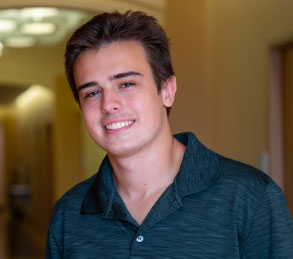Transfer Policy
Greensboro College welcomes transfer students and will transfer credit individually for courses successfully completed at regionally accredited universities, senior colleges, junior colleges, community, and technical colleges. (See also Transfer Credit from Non-regionally Accredited Institutions). The Registrar makes the official evaluation of transfer credits from other institutions, presented by students expecting to transfer to Greensboro College.
We accept transfer credits with the following conditions:
- Transfer courses must be comparable in discipline and content to courses taught at Greensboro College.
- A maximum of 72 semester hours, or 108 quarter hours, can be transferred from two-year institutions. There is no limit to the number of hours transferred from a four-year institution.
- Students must have earned a grade no lower than C- for a course to transfer.
- There is no time limit for transfer courses meeting the above conditions. However, if a faculty member feels that a student’s background is not appropriate in a particular discipline because the content of the transfer courses is outdated, that faculty member may review the student’s transfer courses. This process may result in the student updating or repeating courses identified by the faculty member in consultation with the Registrar and appropriate faculty in the discipline. The awarded transfer credit becomes a general elective credit.
- Students who major in Biology/Allied Health and are awarded transfer credit for a clinical radiologic technology program will lose that transfer credit if they change majors.
Transfer students must complete a minimum of 31 hours at Greensboro College to graduate from the school, or a minimum of 52 hours to be eligible for honors. Transfer students must also satisfy all other graduation requirements for a B.A., B.B.A., B.M.E. or a B.S. degree, including general education requirements, requirements for an academic major with at least 12 hours in the major at Greensboro College applicable to the degree (in Allied Health, a minimum of eight hours of upper-level biology will suffice), approval for competency in written English, approval for oral competency, and a minimum of 124 semester hours.
The following policies govern the acceptance of transfer credit in English:
- Three-quarters of non-remedial, 1000-level English are generally equivalent to two semesters of non-remedial, 1000-level English at Greensboro College. However, a separate literature course may be required.
- Students must finish their English courses with a C- or higher to fulfill ENG 1100, 1110, or 1120 requirements.
- English as a Second Language does not apply to the Greensboro College ENG 1100, 1110, or 1120 requirement.
- A maximum of four hours of credit through a College Level Examination Program, or CLEP, may be accepted for core credit in ENG 1100/1110-1120. CLEP credit generally will be awarded only for ENG 1100/1110. The Director of the Writing Program must approve CLEP credit for ENG 1100/1110 or 1120.
- Faculty may challenge any student’s competency in written English, with the condition that no complaint be allowed after the beginning of the last semester before graduation.
Transfer Credit From Non-Regionally Accredited Institutions
Greensboro College accepts transfer credit from institutions that are not regionally accredited if the coursework is relevant to the student’s degree program, comparable in content and level of instruction to coursework offered by the College, and is taught by faculty with the appropriate credentials. Students who intend to request transfer credit for coursework from a non-regionally accredited institution are responsible for submitting all appropriate documentation, as specified by the Registrar. The determination of whether the credit meets Greensboro College requirements is made by the appropriate faculty member or the Registrar on the basis of policies approved by the Curriculum and Instruction Committee. A student seeking credit for coursework from an institution that is not regionally accredited has the right to request a review of the decision of the faculty member or the Registrar. Such a request will be considered by the Academic Council.
Prior Approval for Coursework at Other Institutions
Current Greensboro College students wishing to enroll in a course or courses at another institution and transfer the credits should receive approval before taking the courses. You can obtain the Prior Approval forms in the Registrar’s office. Credits are accepted from regionally accredited institutions. (See Also Transfer Credit from Non-regionally Accredited Institutions). Transfer credit is awarded for courses a student earns a C- or better. As with other transfer credits, the credit hours are added to the student’s record, but the grade-point average is not affected. Students cannot remove themselves from academic probation by attending summer school at an institution other than Greensboro College, nor can they replace a Greensboro College course grade by repeating that course at another institution (Per the 2012-13 Academic Catalog).
Transfer Credit From Foreign Institutions
To receive credit for courses taken at institutions outside of the U.S., students must provide an official academic transcript with an official English translation and must be evaluated and approved by a National Association of Credential Evaluation Services, or NACES. In the rare case that a student is unable to obtain an official transcript from their country, Greensboro College will accept a certified copy of the transcript accompanied by an official English translation and an evaluation from a NACES-approved evaluation service. Transcripts from international institutions that are already in English must still be accompanied by an official evaluation from a NACES-approved evaluation service. A complete listing of NACES-approved evaluation services can be found online at www.NACES.org.

